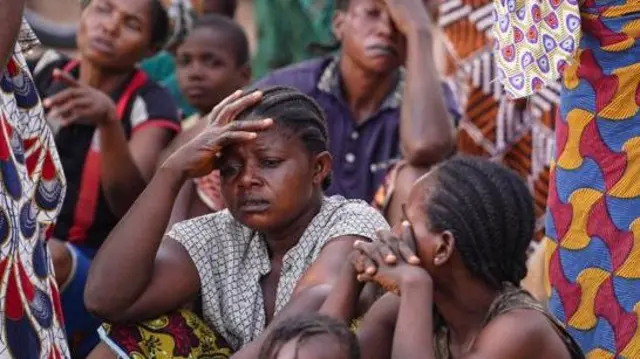THE United Nations High Commissioner for Refugees (UNHCR) has announced sweeping global job cuts that have claimed nearly 5,000 positions across the world, as the organisation struggles with a worsening financial crisis triggered by massive reductions in international humanitarian aid.
In Nigeria alone, over 280 staff members have reportedly lost their jobs in recent months, marking one of the largest single-country layoffs in Africa.
A senior source within the UNHCR Nigeria office confirmed the development to News Point Nigeria, lamenting that “almost 300 UNHCR colleagues have already lost their jobs this year.”
“This is more than half of our Nigeria workforce,” the source said, warning that “the number is expected to grow.”
According to the insider, the cuts have affected both full-time staff and personnel on temporary or consultancy contracts, leaving many families in uncertainty.
“Just when you feel you are safe, another list comes out with your name on it for sacking.
“It’s sad. It feels like the Nigerian office is being targeted because colleagues in other African countries haven’t lost more than 40 to 70 workers this year,” the source lamented.
The UN refugee agency, which has been at the forefront of global humanitarian operations for decades, is now battling its worst financial shortfall in years.
The crisis, officials say, stems largely from a sharp decline in international aid, especially following the return of U.S. President Donald Trump to office earlier this year.
Traditionally the world’s largest donor, the United States previously contributed more than 40 percent of UNHCR’s annual budget. However, Washington’s recent drastic cuts in foreign aid have sent shockwaves across global humanitarian networks.
Filippo Grandi, the UN High Commissioner for Refugees, described the agency’s situation as “dire,” warning that the scale of funding losses has crippled essential humanitarian operations.
“The numbers are bleak,” Grandi admitted.
According to him, UNHCR’s approved budget for 2025 stood at $10.6 billion, but in recent years the agency has been receiving only around half of its budgetary requirements approximately $5 billion.
“As things stand,” he explained, “we project that we will end 2025 with $3.9 billion in funds available, a decrease of $1.3 billion compared to 2024, or roughly 25 percent less.”
Grandi said the steep funding cuts have forced the UNHCR to halt several life-saving programmes, including gender-based violence prevention, psychosocial support for survivors of torture, and food and education support for displaced persons.
“No country, no sector, no partner, has been spared,” Grandi stressed. “Critical programmes and lifesaving activities have to be stopped gender-based violence prevention work, psychosocial support to survivors of torture, stopped.
“Schools were closed, food assistance decreased, cash grants cut, resettlement ground to a halt. This is what happens when you slash funding by over $1 billion in a matter of weeks.”
The UNHCR has long served as a lifeline for millions of displaced people fleeing conflict and persecution.
However, the agency’s latest financial woes threaten to reverse decades of humanitarian progress and destabilise operations in several countries, including Nigeria, Chad, Sudan, Ethiopia, and Yemen.
In Nigeria, the layoffs have raised fears that refugee support operations in the Northeast and other crisis-prone regions could suffer setbacks.
Nigeria hosts thousands of internally displaced persons (IDPs) affected by Boko Haram insurgency and communal conflicts, many of whom rely heavily on UNHCR programmes for housing, food, education, and protection.
The loss of nearly half the organisation’s workforce in Nigeria could severely affect ongoing projects in Borno, Adamawa, and Yobe States, Senior humanitarian worker, Hilda Katung told News Point Nigeria.
“This is not just about jobs, it’s about lives. Every staff member laid off means hundreds of refugees losing access to essential services’, Katung warns,







